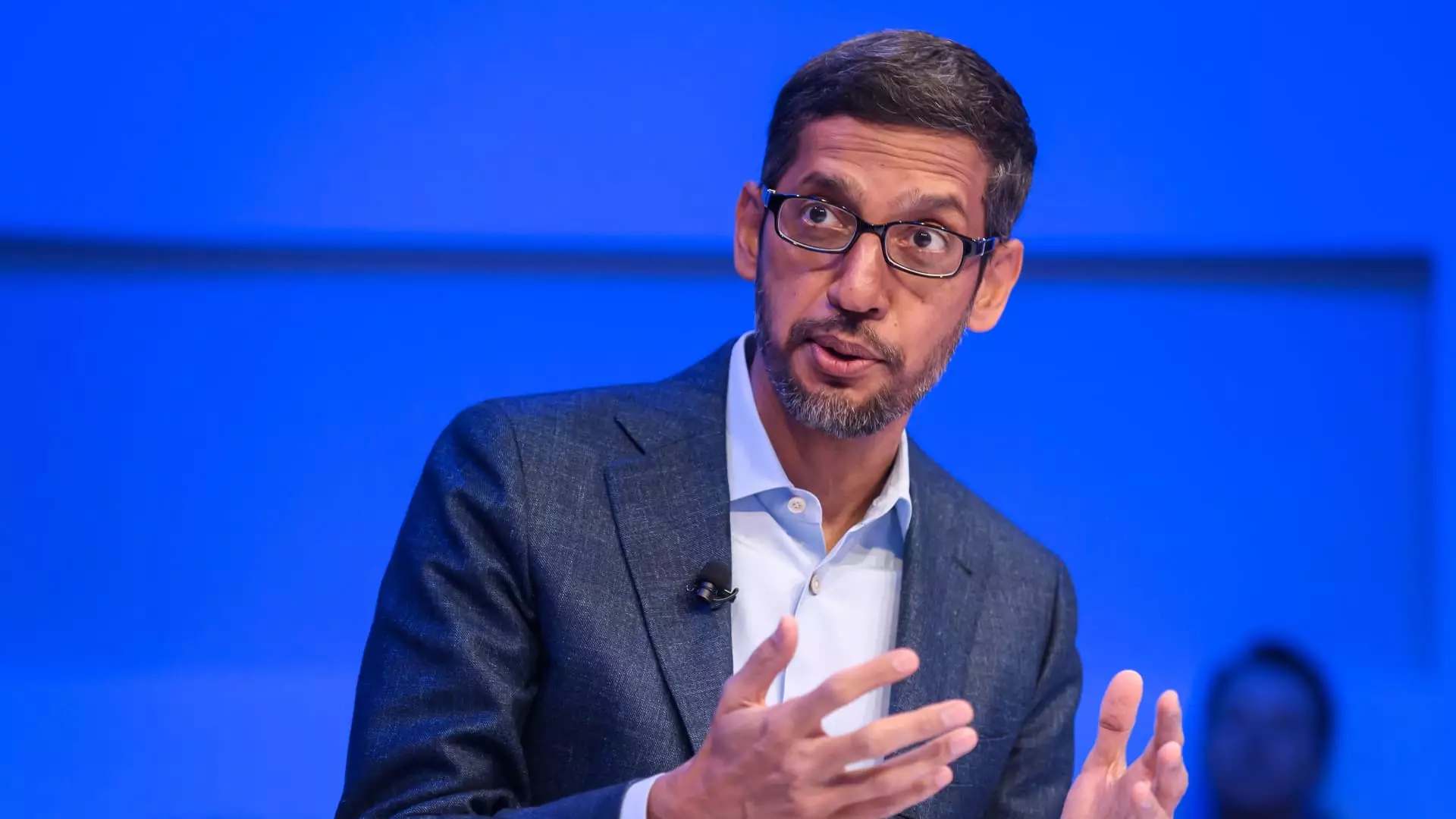The pace of change in technology has brought both opportunities and challenges to industry giants, and Google is at the forefront of this evolution. As 2025 approaches, CEO Sundar Pichai has made it clear that the company is at a critical juncture. With increasing competition and regulatory scrutiny, coupled with the rapid evolution of artificial intelligence (AI), Google’s leadership is urging a renewed focus on innovation and responsiveness.
During a recent strategy meeting, Pichai emphasized the necessity of internalizing the urgency of the current technological landscape. With competition from emergent AI-driven platforms, Google can no longer afford to rest on its laurels. Pichai articulated, “I think it’s really important we internalize the urgency of this moment”, indicating that 2025 is poised to be a decisive year for the company. The ambiance of the meeting, which included a holiday-themed dress code, contrasted sharply with the serious discussions surrounding Google’s strategic direction.
This meeting marked a turning point for Google, encapsulating not just the internal pressures the company faces, but also the external challenges that threaten its market position. As Pichai noted, “the stakes are high,” reinforcing the notion that realizing the full potential of AI technology is paramount for addressing user needs and retaining competitive edge.
The competitive landscape for Google is growing more complex, as new players like OpenAI and Perplexity enter the fray. OpenAI’s ChatGPT has become a familiar name since its emergence in late 2022, garnering significant investor attention and prompting discussions about its potential to dominate AI conversational experiences. With plans to launch its own search engine, OpenAI signals a future where Google’s traditional dominance in search may be challenged by AI-first approaches.
Google, however, is countering this threat with its Gemini initiative, an AI model designed to streamline user experiences across multiple platforms. Pichai made it clear that scaling the Gemini app is not just an ambitious target but a necessity in Google’s efforts to remain relevant in a fast-changing market. The company already boasts 15 apps achieving substantial user milestones, but Pichai stressed the importance of closing gaps with competitors.
Emerging from a tumultuous year marred by increasing regulatory pressures, Google finds itself in a precarious position. Legal challenges concerning antitrust practices indicate that regulators are scrutinizing the company’s operations more fiercely than ever before. A recent federal ruling concluded that Google maintains an illegal monopoly within the search market, adding pressure to Pichai’s leadership as the Justice Department pushes for Google to divest key branches like Chrome.
Pichai’s acknowledgment of these challenges indicates a strong drive within Google to address external perceptions and navigate through potential regulatory landmines. “It’s not lost on me that we are facing scrutiny across the world,” he remarked. This recognition has fostered a concerted effort within the company to align innovation with ethical practices, ensuring that growth does not come at the expense of responsible governance.
Looking ahead, Google is not shying away from ambitious projects. The unveiling of the Gemini app shows the company’s commitment to innovating within the AI sphere. The collaborative efforts from leaders like Demis Hassabis and Pichai highlight a unified vision for creating a universal assistant capable of performing seamlessly across various domains and modalities. By fostering an environment focused on iterative improvements, Google seeks to evolve its products in response to user feedback and technological advancements.
Employee engagement plays an essential role in Google’s strategy as well. Suggestions from staff are being incorporated into planning sessions, reflecting a culture of inclusivity that emphasizes collective input in tackling significant challenges. The openness to dialogue, particularly regarding new service models, could lead to a more agile response strategy in addressing consumer requirements, which is vital in the fierce competition for user attention.
The pressures Google faces evoke a need for adaptability reminiscent of its early days when founders Larry Page and Sergey Brin navigated constraints with creativity. As Google’s workforce numbers gradually decrease—reflecting a broader corporate strategy toward efficiency—Pichai has urged employees to reclaim that innovative spirit.
In navigating the myriad challenges ahead, Google’s commitment to “staying scrappy” not only speaks to its operational focus but also to a revitalized spirit of entrepreneurship. Through smart investments in technology, responsibility-minded practices, and a keen awareness of its external environment, Google is poised to tackle 2025 head-on. Adapting to change while preserving a legacy of innovation will be pivotal in determining how successfully the tech giant navigates the intriguing landscape of modern technology.

